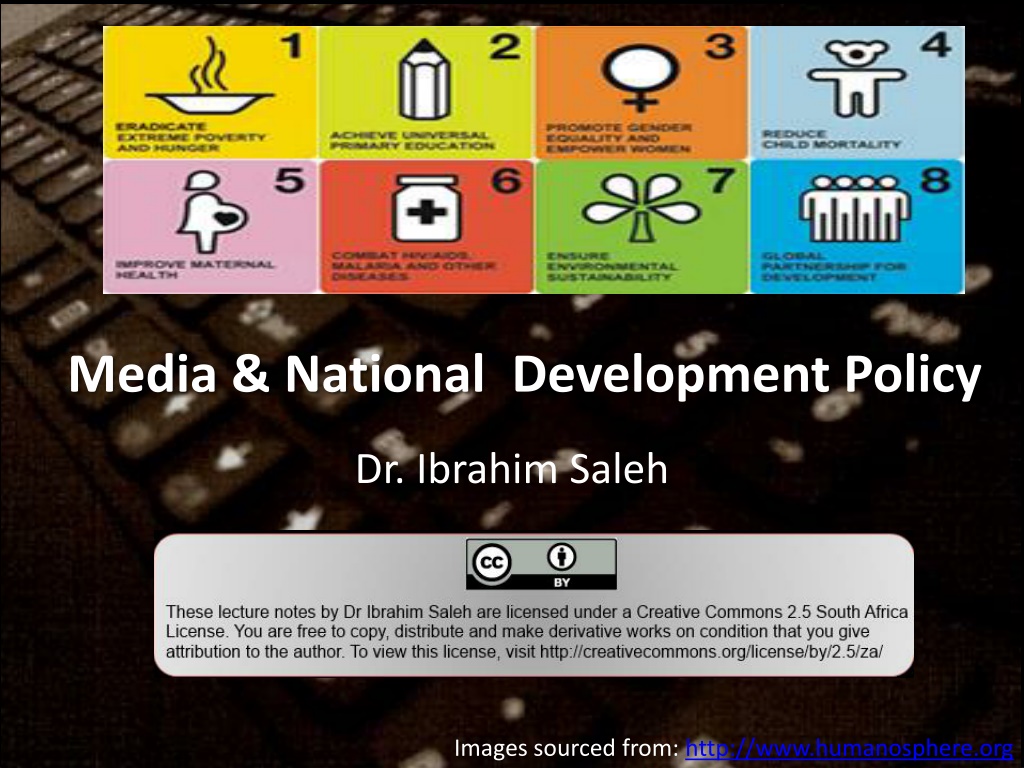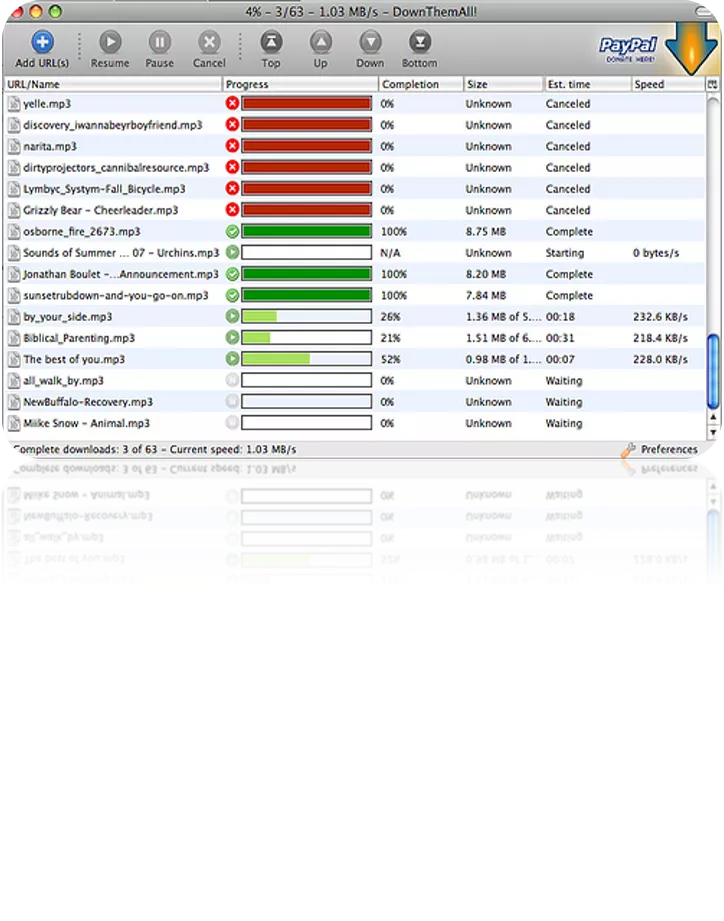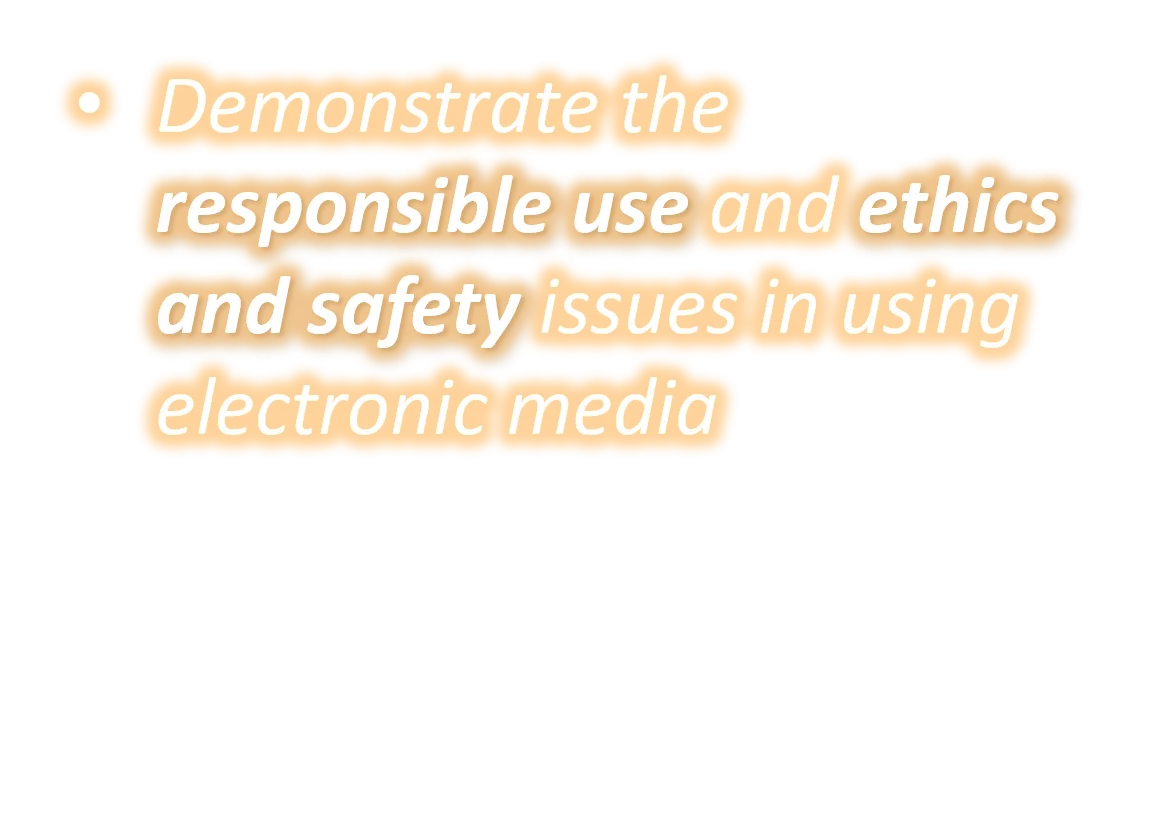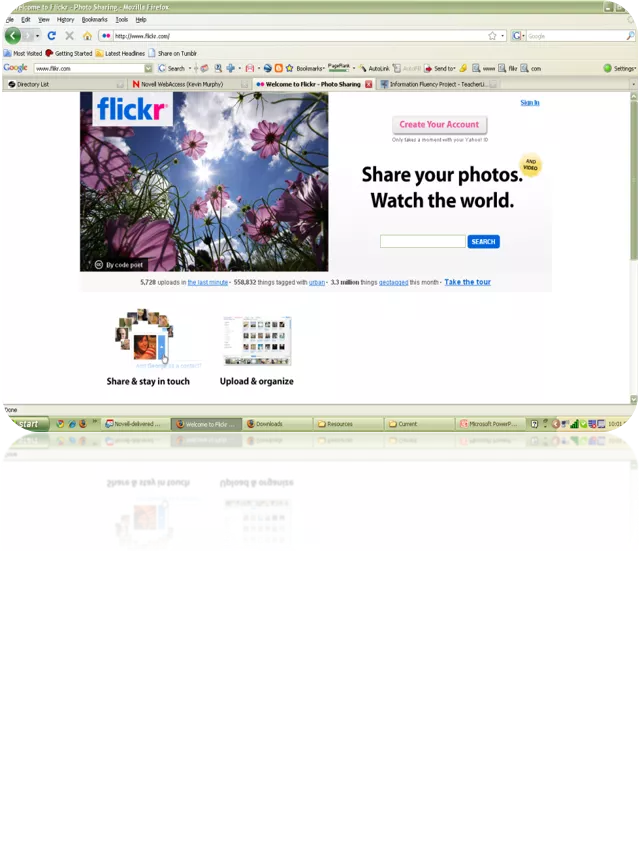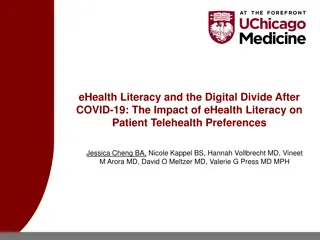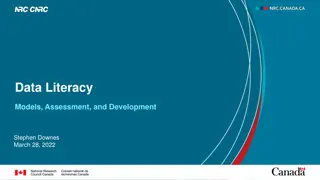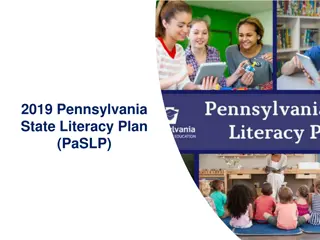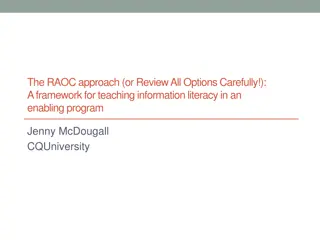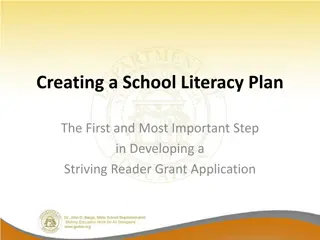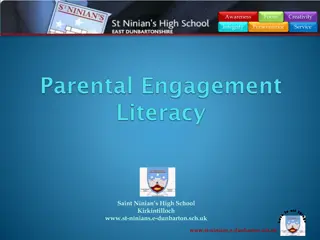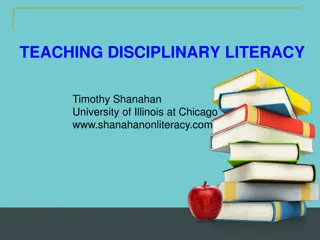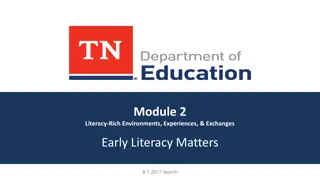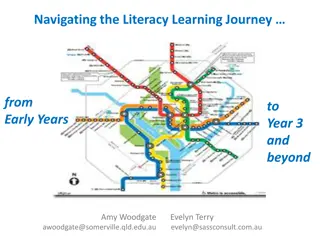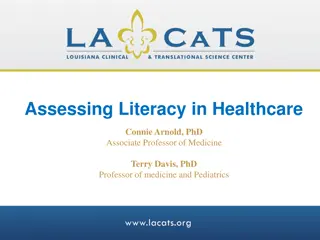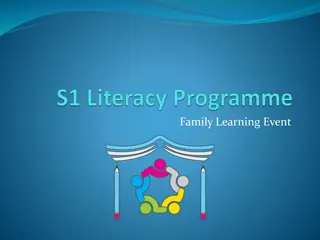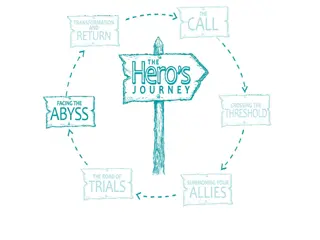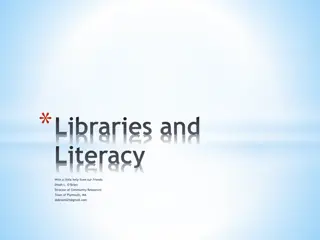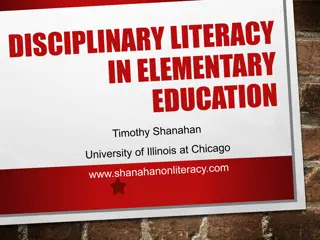Challenges and Solutions in Information Literacy and Technology Development
The provided content delves into the critical topics of information literacy, digital ethics, and the equitable distribution of benefits from information and communication technologies. It emphasizes the need to address the hidden curriculum in education, improve information literacy skills, and understand the socio-economic factors influencing technology utilization. The evolution of 'information skills' and the importance of fostering quality developmental programs, especially for young learners, are highlighted.
Download Presentation

Please find below an Image/Link to download the presentation.
The content on the website is provided AS IS for your information and personal use only. It may not be sold, licensed, or shared on other websites without obtaining consent from the author. Download presentation by click this link. If you encounter any issues during the download, it is possible that the publisher has removed the file from their server.
E N D
Presentation Transcript
Media & National Development Policy Dr. Ibrahim Saleh Images sourced from: http://www.humanosphere.org
In this lecture we will Demonstrate the responsibleuse and ethics and safety issues in using electronic media http://www.flickr.com/photos/heather_r/3670745111/
Thesis Statement Information and telecommunication technologies driven by global market forces polarize the world's population into two warring forces - a new cosmopolitan elite of 'symbolic analysts' who control the technologies and the forces of production, and the majority of the development publics, who have little hope and even fewer prospects for meaningful development and empathy in the future and even the present (Rifkin, 1995: xvii).
What is Information Literacy? Ability to find, understand, evaluate, and use information in various forms to create for personal, social or global purposes .
Significant of topic There is an urgent need to unpack the established curriculum and the "hidden curriculum", or the learning skills acquired apart from the formal content of subjects (Illich, 1973) that are restricted to behavioural rules. In addition to considering the learning of skills needed to use certain technologies and the teaching of information literacy skills
Statement of the Problem Uneven distribution of the benefits of information and communication technologies (ICT). Socio-economic factors that affect the utilization of, expenditure on, and infrastructure of information technology need to be better understood (Saleh, 2012). Increasing concern that young learners are not receiving the expected standard quality programmes to foster their developmental wellbeing. However, there is a consensus, in particular in Africa, that these programmes are generally implemented ineffectively.
' Information skills' was first introduced in 1974 to refer to people, who are able to solve their information problems by using relevant information sources and applying relevant technology (Zurkowski, 1974). According to the American Library Association in its final report on Information Literacy: To be information literate, a person must be able to recognize when information is needed and have the ability to locate, evaluate, and use effectively the needed information (American Library Association, 1989)
Information Literacy "Knowledge is of two kinds: We know a subject ourselves, or We know where we can find information upon it." Samuel Johnson
Skills and Strategies Recognize problems Ask important questions Locate and analyze information and ideas See/understand both sides of the story Demonstrate and apply what you know effectively.
Information Literacy in South Africa Policy framework for information literacy is derived from three policy domains: education policies, ICT policies, and library and information services policies (de Jager & Nassimbeni, 2002:1).
"Our strategyseeks to overcome the legacy of apartheid in which those subjects (maths and science) were deliberately neglected. We live with that legacy still. Apartheid education did more than simply waste human potential. It undermined the self-confidence of most of those unfortunate enough to suffer under it." Professor Kader Asmal, ex-Minister of Education, 2002
After the apartheid, a new system was introduced to empower the different provinces, though it kept a central role for government that paved the way for the establishment of the National Department of Education and nine provincial Departments of Education. The education system of South Africa changed from a racially differentiated system to a geographically differentiated system, thereby eliminating some of the duplication of the previous system (Van Wyk, 1998:13).
Five Categories of literacy are distinguished. Cultural literacy - Cultural, social and ideological values that shape our 'reading' of texts; Critical literacy - The ability to respond critically to the intentions, contents and possible effects of messages and texts on the reader; Visual literacy - The interpretation of images, signs, pictures and non-verbal (body) language, etc.; Media literacy - The 'reading' of media such as TV and film as cultural messages; Computer literacy - The ability to use and access information from computers (Curriculum 2005, 1997).
An information Literate Individual is able to: Know what information needed Get the information quickly and easily Evaluate information and sources Show the information Ethically and legally to accomplish a specific purpose
South Africa Emerging Literacy and Hidden Curricula (Saleh, 2013) Information literacy (IL) is crucial in providing school learners the skills demanded by the global information society. IL includes two layers of competence: students technical abilities to access information from a variety of sources and using a variety of tools in particular ICT. The second layer refers to the subjective sense- making processes of information literacy
"People trained in the application of information resources to their work can be called information literates. They have learned techniques and skills for utilizing the wide range of information tools as well as primary sources for moulding information-solutions to their problems." (Zukowski, 1974)
Why IL is a very problematic issue? Evaluation usually happens as an afterthought in the form of a process meant to satisfy externally determined needs (Johnson, 2000). Lack of cause-effect relation on the assessment information gathered ,or how it can be used to improve instruction? Unclear objectives with almost no or little attention devoted to why the evaluation is occurring, and what is being evaluated may be unclear? Confusion about the meaning of evaluation. Evaluation is a process used to determine the worth of something; by whether some product, process, activity, or procedure is of value or is satisfactory. Inappropriateness of the methods used in evaluation, and the ways in creating public awareness and even the way any results could be perceived by the community as a result of racial issues and historical memory in South Africa.
Conceptual Framework The psychological motivational theories explain why learners choose to participate in some form of learning activity at a particular point in their lives (Woodley, Wagner, Slowey, Hamilton and Fulton 1987). Miller s "force field analysis" model (Beder 1991) links participation in education to the hierarchical needs that are strongly influenced by differences in social class. This makes learners eager to satisfy the more basic needs of survival before directing behaviour toward satisfying higher-order needs; including achievement, recognition and finally self-actualization.
Millers "congruence model" of motivation, which emphasizes that deficiency-oriented learners are motivated to meet lower-order needs, while self- actualizing, growth-oriented learners seek to meet higher-order needs. Many lower literates are deficiency-oriented and have not satisfied the lower order needs in Maslow s hierarchy (Boshier, 1977). However, many scholars are reluctant to accept the assumption that poverty prevents the acquisition of information literacy because it disregards the idea of orientation and social change.
"Expectancy-valence " Model: motivation is based primarily on previous experience and on the perception and interpretation of the environment , the magnitude of values ascribed to the consequences of participation, which can be positive, indifferent or negative based on expectancy and valence (Beder 1991). This model suggests that expectation alone is enough to secure participation, disregarding the reality that there are social, political and economic factors that can come between expectation and reality and prevent learners from realizing their expectations. " Socialization and lifecycle motivational " Models: life challenges and difficulties provide motivation for learners to solve their problems, by learning behaviours and attitudes necessary for functioning in society. Socialization has a great deal to do with decisions to become literate. Learners who believe in the enabling capacity of literacy are more likely to participate, while those who do not believe in it are less likely to do so. Motivation to participate in adult education is linked to the direct and immediate application of knowledge and skills learned.
References American Library Association. 1989. Presidential committee on information literacy. http://www.ala.org/acrl/publications/whitepapers/presidential. Beder, H. 1991. Adult Literacy: Issues for Policy and Practice. Krieger Publishing Co. Krieger Drive: Malabar. Boshier, R. 1977. Motivational orientations re-visited: Life-space motives and the education participation scale. Adult Education Quarterly, 27(2):89-115. De Jager, K. & Nassimbeni, M. 2005. Information literacy and quality assurance in South African higher education institutions. Libri, 55(1):31-38. http://citeseerx.ist.psu.edu/viewdoc/download?doi=10.1.1.113.8342&rep=rep 1&type=pdf. Illich, I. 1973. Tools for conviviality. New York: Harper & Row. Johnson, R. 2000. The authority of the student evaluation questionnaire. Teaching in Higher Education. 5(4):419-434. Rifkin, J. 1995. The end of work: The decline of the global labor force and the dawn of the post-market era. New York: Putnam. Wagner, L., Slowey, M., Hamilton, M., & Fulton, O. 1987. Choosing to Learn: adults in education. Open University Press. Zurkowski, P. 1974. The information service environment: relationships and priorities (Report ED 100391). National Commission on Libraries and Information Science. Washington DC.
